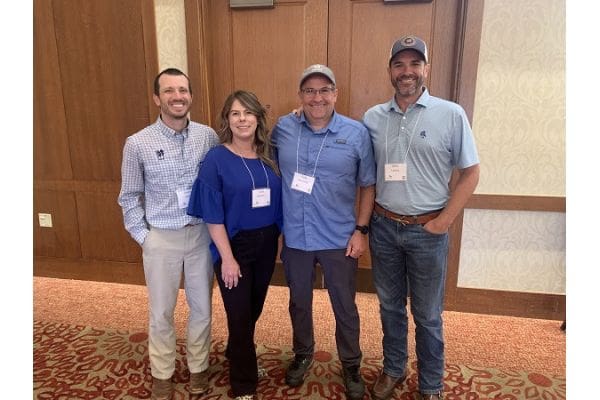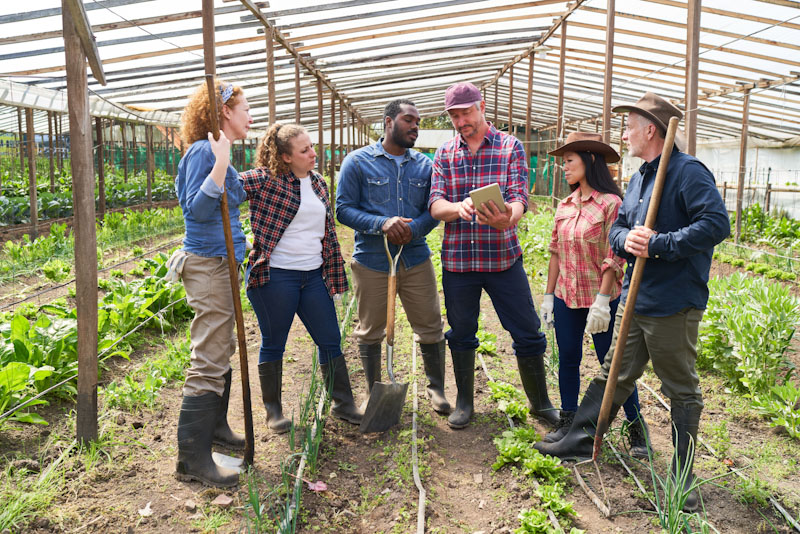EDGEFIELD, S.C. — NWTF biologists, state agency wild turkey biologists and wild turkey researchers recently gathered in Blacksburg, Virginia, for the Southeastern Association of Fish and Wildlife Agencies’ annual Wild Turkey Working Group. The collective collaborated and showcased wild turkey research and wild turkey management updates from across the Southeast. The NWTF provided an update to the consortium on the NWTF’s research, habitat enhancement, policy and education and outreach efforts across the region, including the NWTF’s Habitat for the Hatch Initiative and the new NWTF Distinguished Professor position at the University of Georgia’s Warnell School of Forestry and Natural Resources.
“Virginia was very pleased to host the meeting this year, especially as we celebrated the 50th annual gathering of this group,” said Mike Dye, Virginia Department of Wildlife Resources ruffed grouse and turkey program biologist. “It is very inspiring to see the enthusiasm and passion for improving the management of wild turkeys. This meeting provides a great avenue for sharing our collective experiences in research and management.”
In addition to providing an outlet for collaboration, the Wild Turkey Working Group was established to support the SEAFWA’s Wildlife Resources Technical Committee in fulfilling its mission and the overall purpose of the SEAFWA. Specifically, the Wild Turkey Working Group assists with local and regional issues pertaining to wild turkeys, such as identifying important regional issues and science-based management solutions; identifying collaborative, management-driven research needs and priorities; and developing recommendations for wildlife resource policy.
“It was great to see all the exceptional work happening across the Southeast for the wild turkey,” said Doug Little, NWTF director of conservation operations for the East. “Virginia Department of Wildlife Resources was a tremendous host and is a tremendous partner of the NWTF. The Wild Turkey Working Group provides a vital platform for state agency representatives and researchers to share information, learn from each other’s successes and challenges and collaborate on a deeper level, all for the conservation of the wild turkey. We are proud to be a part of this important gathering.”
NWTF District Biologist Cully McCurdy helped kick off day one of the gathering by showcasing the cooperative management efforts on the George Washington-Jefferson National Forests in Virginia. McCurdy provided an overview on the National Forest Stamp program in Virginia and how those funds are earmarked for habitat work on the national forest. The NWTF is in year 13 of an agreement with the Virginia Department of Wildlife Resources to administer a significant portion of those funds. The work has resulted in $2.7 million in project delivery that has impacted 17,000 acres.
McCurdy’s presentation was followed by days of discussing updates on various wild turkey research and management projects, from hunter-harvest impacts, evaluating population trends, fertility, disease ecology and more.
Little gave a comprehensive update of the NWTF’s work within the Southeast on last day of the gathering. A powerful piece of information that Little shared was that the NWTF’s state chapters within the Southeast, collectively, allocated over $2 million to conservation and outreach projects in fiscal year 2024 alone, with an anticipated impact of over 313,000 acres this year.
Little’s report also included habitat projects happening in every southeastern state, private land work being accomplished by the NWTF’s National Forestry Initiative and the NWTF’s over $1.2 million invested in wild turkey research in the last two years.
“We commend SEAFWA for providing such a productive forum for wild turkey discourse and allowing the NWTF to be a part of this important gathering,” Little said. “It’s not everyday that we get to meet with so many of our partners in one place and collaborate and share information.”
Many of the state agency turkey biologists at the SEAFWA’s Wild Turkey Working Group serve as pivotal members of the NWTF’s National Wild Turkey Technical Committee, a group comprised of wild turkey biologists from nearly every state natural resource agency who act as liaisons between the NWTF and state natural resources agencies to effectively manage wild turkey populations and deliver conservation that benefits turkeys in a particular state.
“Considering the complex challenges facing turkeys and turkey managers, communication and collaboration at various levels are key for conservation,” said Zak Danks, Kentucky Department of Fish and Wildlife Resources turkey-grouse program coordinator and NWTF Technical Committee co-chair. “The NWTF Technical Committee fosters discussion and collaboration among biologists on national-level policy and science matters. In turn, the Southeast Wild Turkey Working Group meeting lets us hone in on regional issues, and the same is true for with the Northeast, Midwest and Western regional meetings. The upshot is an ongoing flow of discussion and collective action at both levels – national and state – the point of which is to make things better for turkeys and turkey hunters in each state. The chance to learn from and collaborate with such dedicated, talented and passionate professionals is humbling and inspiring.”
About the National Wild Turkey Federation
Since 1973, the National Wild Turkey Federation has invested over half a billion dollars into wildlife conservation and has positively impacted over 23 million acres of critical wildlife habitat. The NWTF has also invested over $9 million into wild turkey research to guide the management of the wild turkey population and to ensure sustainable populations into perpetuity. The organization continues to deliver its mission by working across boundaries on a landscape scale through its Four Shared Values: clean and abundant water, healthy forests and wildlife habitat, resilient communities and robust recreational opportunities. With the help of its dedicated members, partners and staff, the NWTF continues its work to provide Healthy Habitats. and Healthy Harvests. for future generations.
Read the full article here




